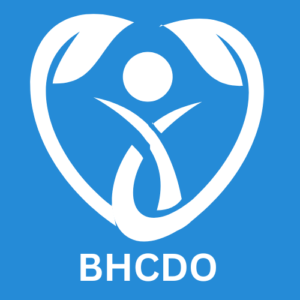Call us
+252-614883858
Better Hope Community Development Organization (BHCDO) prioritizes livelihood programs as a key part of its mission to uplift vulnerable communities, particularly those affected by conflict, displacement, and poverty in Somalia. Central to BHCDO’s livelihood initiatives is microenterprise development, which focuses on providing individuals with the tools, skills, and resources they need to start and sustain small businesses. By fostering entrepreneurship, BHCDO helps create pathways to economic independence and reduces dependency on humanitarian aid, ensuring long-term resilience and self-sufficiency.
BHCDO’s livelihood programs take a holistic approach, recognizing that economic empowerment is closely linked to other areas such as education, health, and social inclusion. For example, BHCDO integrates its vocational training programs with broader initiatives, such as access to financial services and social protection measures. By combining these efforts, the organization ensures that entrepreneurs have a comprehensive support system to help them succeed.
Additionally, BHCDO works to remove barriers that prevent marginalized groups, such as women and youth, from accessing economic opportunities. This includes addressing social and cultural norms that may restrict women’s participation in the workforce and providing safe spaces for women to engage in economic activities. BHCDO also supports youth entrepreneurship programs, recognizing that young people are often underrepresented in the formal economy and face higher levels of unemployment.
In Somalia, the challenges of unemployment, poverty, and displacement are widespread, making economic opportunities scarce. BHCDO’s focus on microenterprise development directly addresses these challenges by providing individuals with the tools to create their own jobs and generate income. The organization’s livelihood programs are particularly crucial for displaced persons, who often face additional hurdles, such as limited access to land and formal employment.
Access to capital is another major barrier for many aspiring entrepreneurs. BHCDO works to bridge this gap by partnering with microfinance institutions and other funding sources to provide entrepreneurs with the initial investment they need. By doing so, the organization helps reduce the risks associated with starting a business and increases the chances of long-term success.
The impact of BHCDO’s microenterprise-focused livelihood programs is transformative for individuals and communities. For many participants, starting a small business is the first step toward economic independence and improved quality of life. Entrepreneurs who benefit from BHCDO’s programs are able to provide for their families, send their children to school, and invest in their communities.
For women, in particular, the ability to launch a microenterprise is often life-changing. Financial independence allows women to take on new roles within their households and communities, and it improves their social standing. In many cases, successful women entrepreneurs become role models for others, encouraging more women to participate in the economy and contribute to local development.
The multiplier effect of microenterprise development is also evident. As small businesses grow, they often create additional jobs, benefiting other members of the community. The income generated by microenterprises is reinvested in the local economy, further stimulating growth and development.
BHCDO’s commitment to microenterprise development as a core component of its livelihood programs ensures that vulnerable communities have the tools and resources they need to achieve economic resilience. As the organization continues to invest in vocational training, market access, and financial inclusion, the future for entrepreneurs in Somalia looks promising.
By fostering entrepreneurship and supporting the development of sustainable microenterprises, BHCDO is helping to build a future where individuals can achieve self-reliance and contribute to the economic development of their communities. The organization’s focus on empowering women and youth through these initiatives ensures that the benefits of economic growth are widely shared.
In summary, BHCDO’s livelihood programs, with a focus on microenterprise development, provide individuals with the skills, resources, and support needed to create and sustain small businesses. By empowering communities through entrepreneurship, BHCDO fosters economic independence, resilience, and long-term development.

Better Hope Community Development Organization is dedicated to transforming lives and building resilient communities across Somalia. Our mission is to provide sustainable and comprehensive solutions in various critical areas to improve the well-being and future prospects of the Somali people.
+252-614883858
info@betterhopecommunitydevelopment.org
Baidoa, Southwest State Somalia
BHCDO© 2024, All Rights Reserved